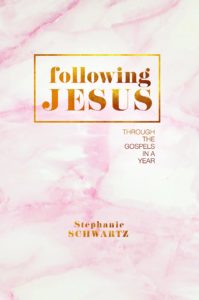Mark 11:12-19 (ESV)
12 On the following day, when they came from Bethany, he was hungry. 13 And seeing in the distance a fig tree in leaf, he went to see if he could find anything on it. When he came to it, he found nothing but leaves, for it was not the season for figs. 14 And he said to it, “May no one ever eat fruit from you again.” And his disciples heard it. 15 And they came to Jerusalem. And he entered the temple and began to drive out those who sold and those who bought in the temple, and he overturned the tables of the money-changers and the seats of those who sold pigeons. 16 And he would not allow anyone to carry anything through the temple. 17 And he was teaching them and saying to them, “Is it not written, ‘My house shall be called a house of prayer for all the nations’? But you have made it a den of robbers.” 18 And the chief priests and the scribes heard it and were seeking a way to destroy him, for they feared him, because all the crowd was astonished at his teaching. 19 And when evening came they went out of the city.
Jesus and his friends were leaving Bethany, a little less than two miles from Jerusalem, when they saw a fig tree and supposed they would eat the fruit. But when they got to the tree, no fruit grew on it, only leaves. Jesus cursed the tree and moved on. This account has been controversial. To some, this record of Jesus’ action simply doesn’t make sense. Why would Jesus curse the tree just because it bore no fruit? It wasn’t even the season for figs (v. 13)! Was Jesus “venting” his frustration on the tree? Some scholars argue that Jesus should have controlled himself here. Figs were normally picked during harvest time, anywhere from late May all the way through to mid-October. When harvest time was over, undeveloped buds still remained on the trees, which became edible by the following March or April. After those buds were ready to eat, the trees produced lots of leaves. This fig tree was loaded with leaves, so Jesus expected to find the buds, but none grew there. Although it wasn’t the season for full and ripe figs, something edible should have grown on that tree. In the verse before this account, Jesus was in the temple (11:11). In the verse right after, Jesus entered the temple (v. 15). This account was strategically placed between verses 11 and 15 to illustrate Jesus’ frustration with the temple.
The temple was full of activity and people. Many came to worship God. The temple was full of “leaves,” and Jesus expected to find “fruit” there as well. The fig tree, which created the hope of fruit yet was barren, was just like the temple. Just as Jesus should have found something edible on the fig tree, he should have found “spiritual fruit” in the temple. The fig tree’s curse was actually a sign of the coming judgment upon the temple. We shouldn’t miss the warning here. We too can be full of activity, or leaves, but lack real fruit. Genuine fruit comes from abiding in Jesus or being connected to him. Think about it. Are you really depending on Jesus, or are you trusting in yourself? Do you seek him in his word and talk to him in prayer? Remember that “leaves,” or lots of activity, can be deceptive. Make sure you aren’t so busy doing things for Jesus that you have no time for a relationship with him.


 Stephanie is the Women’s Ministry Director at Compass Bible Church located in Aliso Viejo, CA. Her role as director includes teaching at women’s Bible studies and events, training women’s ministry leaders, engaging in biblical counseling and discipleship.…
Stephanie is the Women’s Ministry Director at Compass Bible Church located in Aliso Viejo, CA. Her role as director includes teaching at women’s Bible studies and events, training women’s ministry leaders, engaging in biblical counseling and discipleship.… 

Recent Comments